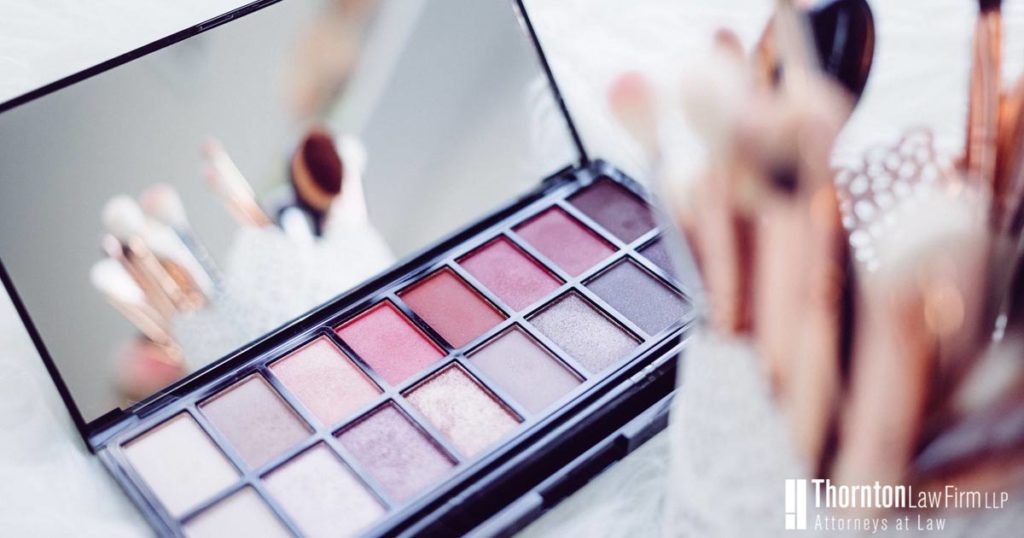Cosmetic Talc Products Analyzed for Asbestos
A study published last month found cancer-causing asbestos in 1 of 7 talc-based cosmetics. The study, commissioned by the Environmental Working Group, an advocacy non-profit, found asbestos in 3 of the 21 cosmetic talc products studied. The Scientific Analytical Institute in Greensboro, North Carolina conducted the tests. Their results were published in the peer-reviewed scientific journal Environmental Health Insights.
Asbestos and Talc
Naturally-occurring minerals, asbestos and talc are often found in the same rocks mined for cosmetic use. Asbestos is a well-known carcinogen that can cause the deadly cancer mesothelioma, as well as lung cancer and cancers of the gastrointestinal tract. Around 15,000 Americans die each year from an asbestos-related disease.
There is no safe level of exposure to a substance that causes cancer. In the EWG release announcing the study, EWG senior scientist Tasha Stoiber stated:
“Inhaling even the tiniest amount of asbestos in talc can cause mesothelioma and other deadly diseases, many years after exposure. How much talc is inhaled — and how much is contaminated with asbestos — is hard to know, but it only takes one asbestos fiber, lodged in the lungs, to cause mesothelioma decades later.”
Inadequate Testing of Cosmetics
Electron microscopy was used to test the 21 samples. Asbestos was found in two eye shadow palettes marketed to adults, and in a children’s toy makeup kit. This is not the first time asbestos has been found in a cosmetics product marketed to children; however, the FDA does not currently require that products be tested for the presence of asbestos before sale. The EWG calls for mandatory pre-marketing testing for all cosmetics products, and for more rigorous testing of talc-containing products that may contain asbestos. Because cosmetics are not required to be tested before sale, the EWG recommends against buying any talc-based products at this time, as they may well contain asbestos.
The cosmetics in this study that tested positive for asbestos contamination were sold by large-scale online retailers. Both eBay and Amazon stopped selling these products after EWG notified consumers that the products contained asbestos. The findings in this study are in line with other recent studies that have found asbestos in commercially available cosmetic products. In March of 2020 the FDA released a report on the testing of 52 cosmetics, finding that nine – 17 percent – contained asbestos.
Which Cosmetics Contained Asbestos?
“The lab found asbestos – up to nearly 3.9 million asbestos fiber structures per gram of eyeshadow – in the Jmkcoz 120 Colors Eyeshadow Palette makeup kit…. Of the 45 shades tested from the Jmkcoz kit, 40 percent contained asbestos.
Asbestos was found in a second eyeshadow kit, Beauty Glazed Gorgeous Me Eye Shadow Tray Palette, … at levels up to 3.5 million asbestos fiber structures per gram of eyeshadow. Of the 25 shades tested from the Beauty Glazed kit, 20 percent contained the deadly fiber.”
https://www.ewg.org/release/alert-tests-find-asbestos-talc-based-eye-shadow-kits
“The lab found that every gram of the eye shadow in the Princess Girl’s All-in-One Deluxe Makeup Palette tested contained more than 4 million asbestos fiber structures.”
https://www.ewg.org/release/alert-tests-find-high-levels-asbestos-children-s-makeup-kit
Talc and Cancer
Talc has been implicated in the development of cancer. Both mesothelioma and ovarian cancer are associated with the use of cosmetic talc. Mesothelioma, a cancer that is only caused by asbestos, is caused by the asbestos contaminant in talc. Exposure to cosmetic talc is also associated with ovarian cancer, although at this juncture scientists are not exactly sure of how it causes cancer. To read more on talc and cancer, click here.
What Can You Do?
You must check all your cosmetic makeup products, especially your children’s products, for the presence of talc. The EWG warns consumers to be wary of toy makeup kits for children, as they are often made with “cheap and potentially hazardous ingredients.” Talc may be described on a label as talc, talcum powder, cosmetic talc, or magnesium silicate. No federal agency has pre-market review authority and therefore cannot enforce any recall over cosmetics. Unfortunately, because of this regulatory gap, neither the FDA nor any other federal agency has primary responsibility for regulating asbestos or talc in makeup.

